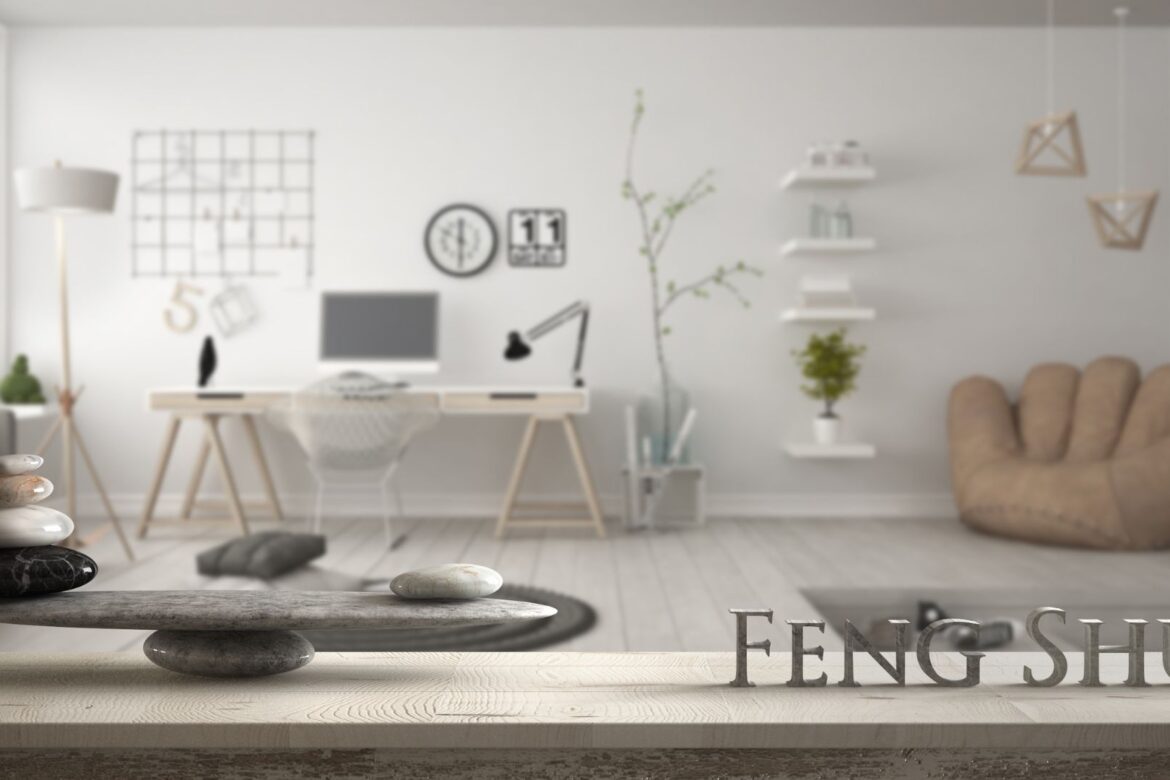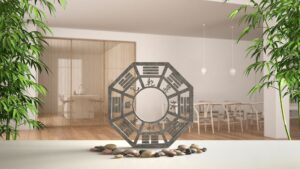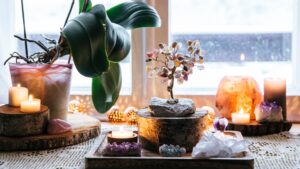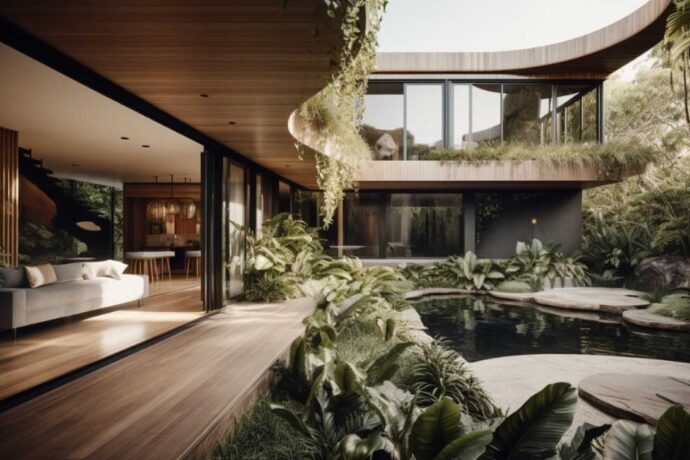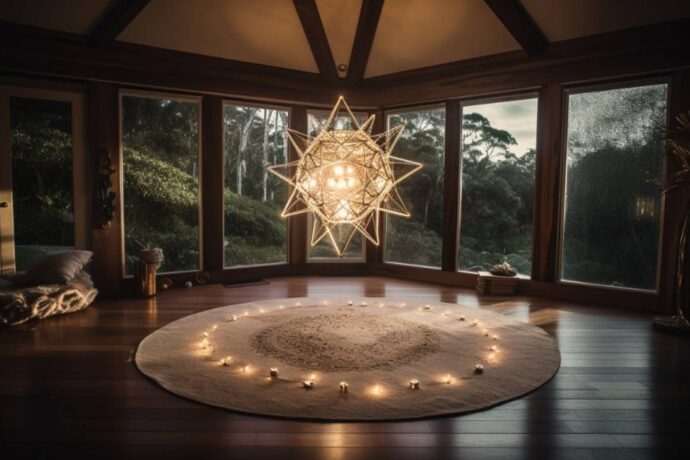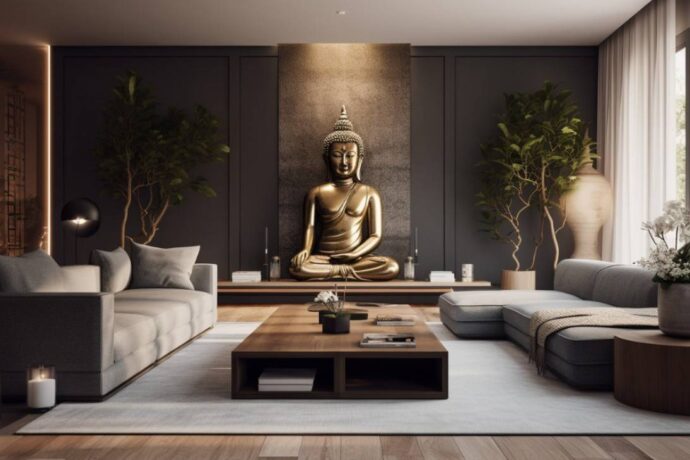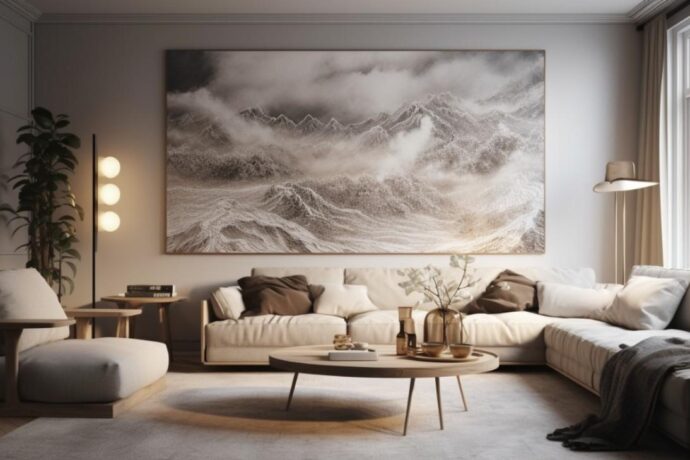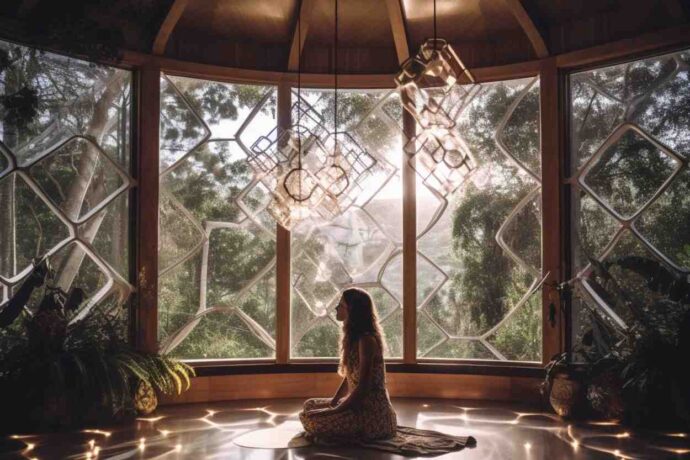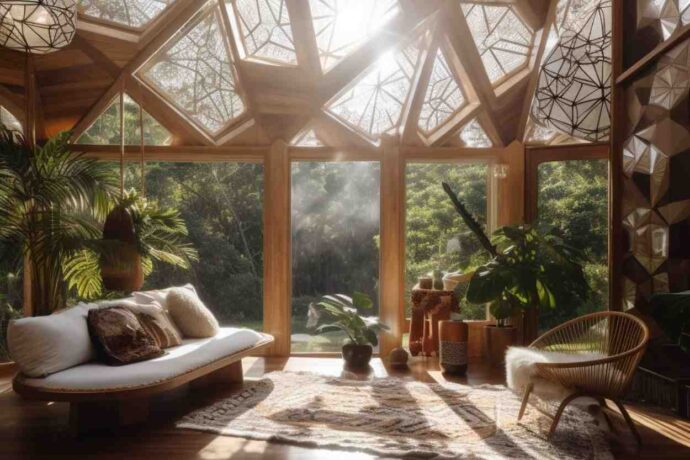Moving into a new home is a significant life event filled with excitement and anticipation. As you set about arranging your space, there’s an opportunity to ensure that your home not only reflects your personal style but also radiates positive energy. This is where Feng Shui comes in. Far from being just a design trend, Feng Shui is an ancient Chinese art that harmonizes your environment with your personal energy, ensuring a balanced and prosperous life.
When applied to a new home, Feng Shui can help you create a living space that supports your well-being, encourages harmony in your relationships, and even enhances your success. Here are essential Feng Shui principles to consider as you set up your new home.
Understanding the Flow of Energy
Central to Feng Shui is the concept of Qi (pronounced “chee”), the life force or energy that flows through every space. In a home, Qi should move freely without obstruction to promote a healthy and vibrant environment. When setting up your new home, consider how energy flows through the rooms. This can be influenced by the layout of your furniture, the placement of doors and windows, and the general cleanliness of the space.
One practical way to assess energy flow is by walking through your home and noticing any areas where you feel blocked or where the energy feels stagnant. Perhaps a piece of furniture is awkwardly positioned, making it difficult to move freely, or there’s clutter in certain corners. These could be signs that Qi is being obstructed.
The Importance of the Front Door
The front door, often referred to as the “mouth of Qi,” is a crucial element in Feng Shui. It’s through this entrance that energy flows into your home, setting the tone for the entire space. Ensuring your front door is inviting and well-maintained can help attract positive energy.
Start by making sure the door is in good condition—no creaking hinges or peeling paint. A well-lit entrance with a clear path leading to the door also encourages the flow of positive Qi. If possible, avoid placing mirrors directly opposite the front door, as they can reflect and push energy back out of the home.
Creating Balance with the Five Elements
- Feng Shui relies on the harmonious interaction of five elements: Wood, Fire, Earth, Metal, and Water. Each element represents different aspects of life and can influence your environment depending on how they are used.
- Wood symbolizes growth and vitality. Introduce this element through plants, wooden furniture, or even artwork depicting trees and flowers.
- Fire is associated with passion and energy. Candles, lights, and the color red can bring this element into your home.
- Earth provides stability and grounding. Earthy colors, ceramics, and stone objects can introduce this element.
- Metal represents clarity and precision. Incorporate metal through décor items like frames, sculptures, or metallic finishes.
- Water symbolizes wealth and abundance. Water features, mirrors, and objects in deep blue or black can invite this element.
- Strive for a balance among these elements in each room. Too much of one can create an imbalance, leading to a feeling of discomfort or disharmony.
Mindful Furniture Placement
The placement of furniture can significantly affect the energy flow in your home. A common principle is to position key pieces, like your bed and sofa, in a way that allows you to see the door from where you sit or lie down, without being directly in line with it. This is known as the command position and it symbolizes control and preparedness in life.
In the living room, arrange seating in a way that encourages conversation and connection. Avoid placing all furniture against the walls, as this can create a sense of isolation. Instead, allow for some space around the furniture to promote circulation of energy.
In the bedroom, the bed should have a solid wall behind it for support and should be easily accessible from both sides. Avoid placing the bed directly under a window, as this can disrupt sleep by allowing energy to escape.
Decluttering for Clarity
Clutter is more than just a visual distraction; in Feng Shui, it represents stagnant energy that can block the flow of Qi and lead to feelings of stress and overwhelm. As you move into your new home, take the opportunity to declutter thoroughly.
Start with the areas where clutter tends to accumulate—closets, drawers, and storage spaces. Only keep items that are meaningful, useful, or bring you joy. This not only frees up physical space but also clears your mind and emotions, creating a more serene and balanced environment.
Remember, it’s not just about tidying up; it’s about being intentional with what you choose to keep in your space. Each item should serve a purpose and contribute positively to the energy of your home.
Personalizing with Intention
Feng Shui is not a one-size-fits-all practice. Your home should reflect your personal energy and intentions. Consider what you want to manifest in your life—whether it’s love, success, health, or peace—and design your space accordingly.
If you’re seeking more love and connection, focus on the relationship corner of your home, which is the far-right corner from the entrance door when looking into the space. This area can be enhanced with pairs of objects, soft lighting, and romantic colors.
For career success, pay attention to the front center of your home, which is connected to your career and life path. Keep this area clean, bright, and free from obstructions. Adding symbols of water or elements in dark colors can also support career growth.
If health is a priority, the center of your home is the area to focus on. Keep this space open, clutter-free, and introduce earthy elements like crystals, plants, or anything that feels grounding and supportive.
Enhancing with Color
- Color is a powerful tool in Feng Shui and can significantly influence the energy of a space. Each color corresponds to one of the five elements and can be used to enhance specific areas of your home.
- Red energizes and stimulates. It’s ideal for spaces where activity and energy are desired, like the living room or dining area.
- Blue calms and soothes, making it perfect for bedrooms or meditation spaces.
- Green promotes balance and renewal. It’s a great choice for any room where you want to feel rejuvenated, such as a home office or study.
- Yellow brings warmth and cheerfulness. Use it in kitchens or dining areas to create an inviting atmosphere.
- White symbolizes purity and clarity. It’s a versatile color that can be used in any room to create a sense of openness and freshness.
- When choosing colors, think about how they make you feel and how they interact with the elements you wish to emphasize in your home.
The Power of Natural Light
Natural light is a vital aspect of Feng Shui, as it is considered a source of positive energy. Maximizing the amount of natural light in your home can greatly enhance the overall energy and create a more vibrant living space.
Start by keeping windows clean and unobstructed to allow sunlight to flow freely into your home. If your space lacks natural light, consider using full-spectrum lighting that mimics daylight. Mirrors can also be strategically placed to reflect light and brighten darker areas.
It’s also important to be mindful of window coverings. Heavy, dark curtains can block light and energy, so opt for lighter, more airy materials that can be easily adjusted to control the flow of light.
Creating a Tranquil Space for Rest and Relaxation
In our fast-paced world, having a peaceful retreat within your home is essential. Whether it’s a cozy reading nook, a meditation corner, or simply a well-organized bedroom, this space should be designed to promote relaxation and rejuvenation.
Use soft textures, calming colors, and gentle lighting to create an atmosphere of peace. Keep technology and work-related items out of this area to maintain its tranquility. Incorporating elements like plants, candles, or a small water feature can further enhance the calming energy.
This space is your sanctuary—a place where you can retreat from the outside world and recharge your spirit. Be intentional about what you include here, and let it be a reflection of what brings you peace and joy.
Bringing it All Together
Feng Shui is about creating a home that feels good to you, where the energy supports your dreams, health, and happiness. It’s not about following rules rigidly but rather understanding how your environment can influence your life and then making mindful choices to align your space with your goals.
As you settle into your new home, take the time to feel out what works best for you. Trust your instincts, experiment with different arrangements, and make adjustments as needed. The goal is to create a living space that nurtures and supports you in every way possible.
By applying these essential Feng Shui principles, you can transform your new home into a place of harmony, balance, and positive energy—a true sanctuary for you and your loved ones.


